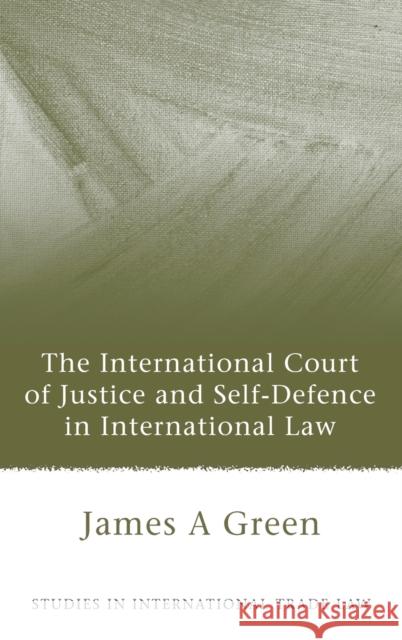The International Court of Justice and Self-Defence in International Law » książka
The International Court of Justice and Self-Defence in International Law
ISBN-13: 9781841138763 / Angielski / Twarda / 2009 / 246 str.
The legal rules governing the use of force between States is one of the most fundamental - and the most controversial aspects of international law. An essential part of this area is the question of when, and to what extent, a State may lawfully use force against another in self-defense. However, the parameters of this inherent right remain obscure, despite the best efforts of scholars and, notably, the International Court of Justice (ICJ). This book examines the burgeoning relationship between the ICJ and the right of self-defense. Since 2003, there have been three major decisions of the ICJ that have dealt directly with the law governing self-defense actions, in contrast to only two such cases in the preceding 50 years. This, then, is an opportune moment to reconsider the jurisprudence of the ICJ on this issue. This book is the first of its kind to comprehensively draw together and assess the merits of this jurisprudence. It argues that the contributions by the ICJ have been confused and unhelpful, and compound inadequacies in existing customary international law. The ICJ's fundamental conception of a primary criterion of 'armed attack' as constituting a qualitatively grave use of force is brought into question. The book then goes on to examine the underlying causes of the problems that have emerged in the jurisprudence on this crucial issue. This book has won the American Society of International Law's Lieber Society Book Prize 2009.











